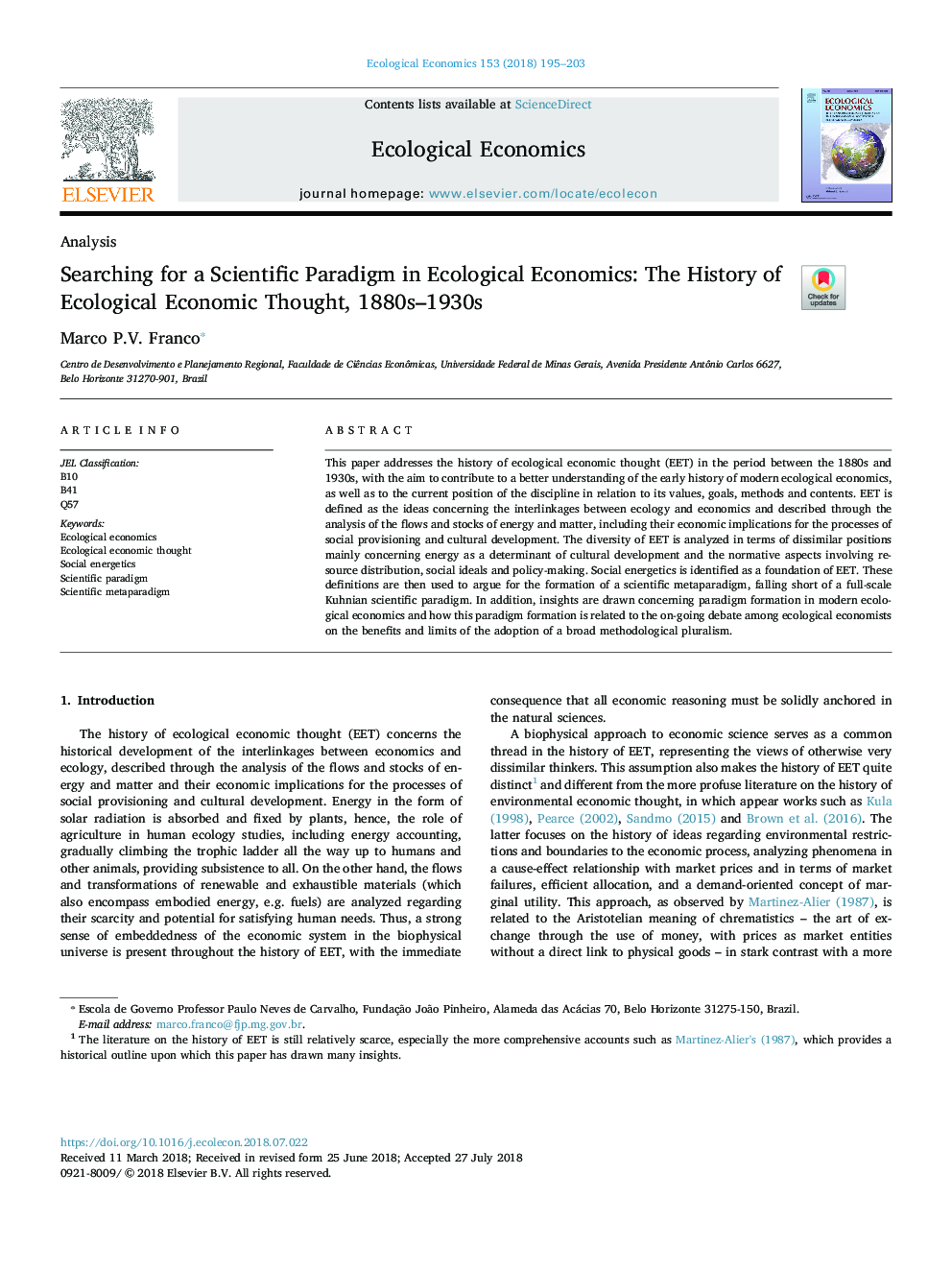| Article ID | Journal | Published Year | Pages | File Type |
|---|---|---|---|---|
| 7343783 | Ecological Economics | 2018 | 9 Pages |
Abstract
This paper addresses the history of ecological economic thought (EET) in the period between the 1880s and 1930s, with the aim to contribute to a better understanding of the early history of modern ecological economics, as well as to the current position of the discipline in relation to its values, goals, methods and contents. EET is defined as the ideas concerning the interlinkages between ecology and economics and described through the analysis of the flows and stocks of energy and matter, including their economic implications for the processes of social provisioning and cultural development. The diversity of EET is analyzed in terms of dissimilar positions mainly concerning energy as a determinant of cultural development and the normative aspects involving resource distribution, social ideals and policy-making. Social energetics is identified as a foundation of EET. These definitions are then used to argue for the formation of a scientific metaparadigm, falling short of a full-scale Kuhnian scientific paradigm. In addition, insights are drawn concerning paradigm formation in modern ecological economics and how this paradigm formation is related to the on-going debate among ecological economists on the benefits and limits of the adoption of a broad methodological pluralism.
Keywords
Related Topics
Life Sciences
Agricultural and Biological Sciences
Ecology, Evolution, Behavior and Systematics
Authors
Marco P.V. Franco,
